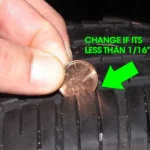Buying a used car can be a great way to save money, but it’s crucial to approach the process with caution and knowledge. This guide provides essential car buying tips for used cars to help you navigate the market confidently and make a smart purchase. From initial research to finalizing the paperwork, we’ll cover key steps to ensure you get a reliable vehicle at a fair price.
Contacting the Seller: Your First Step
Before rushing to see a potential car, contact the seller. This allows you to verify information, establish rapport, and gather crucial details. Ask private sellers about their reason for selling and any mechanical issues. For dealerships, confirm the car’s availability. This initial conversation can reveal hidden details not mentioned in the advertisement. Use a comprehensive used car questionnaire to guide your questions, covering aspects like maintenance history, accident records, and the asking price. Schedule a test drive in daylight for a thorough inspection.
The Importance of a Thorough Test Drive
A test drive is essential when buying a used car. It helps you evaluate the car’s condition and determine if it suits your needs. Pay attention to:
-
Comfort and Space: Assess ease of entry/exit, headroom, legroom, and seat comfort. Adjust seats and steering wheel for optimal driving position.
-
Warning Signs: Check for illuminated warning lights, especially the check engine light. Note any unusual smells like gas or burning oil.
-
Visibility and Functionality: Evaluate visibility through mirrors, identify blind spots, and test headlights, brake lights, and turn signals.
-
Mechanical Check: Inspect tires for age and tread depth. Assess brake performance for responsiveness and unusual noises.
-
Under the Hood: Examine the engine compartment for leaks, damage, or worn hoses. Ask questions about anything that looks amiss.
-
Climate Control: Ensure the air conditioning blows cold air.
After the test drive, request service records to understand the car’s maintenance history.
Pre-Purchase Inspection: An Investment in Peace of Mind
Before finalizing the purchase, consider a professional pre-purchase inspection by a trusted mechanic. This relatively small investment ($100-$200) can identify hidden problems that might be costly to repair later. Most sellers will accommodate this request. A thorough inspection typically takes an hour or less.
Negotiating the Price: Tips for Success
Negotiating the price doesn’t have to be daunting. Research the average price for the car model and year to have a baseline for your offer. Start with a reasonable offer below your maximum budget, supporting it with your research. Be prepared to discuss and compromise to reach a fair price.
Finalizing the Paperwork: Sealing the Deal
When buying from a dealership, carefully review the sales contract, including the vehicle cost, documentation fees, taxes, and any additional services offered like warranties. For private sales, ensure proper title and registration transfer. Verify there are no outstanding fees and obtain insurance before driving the car.
By following these car buying tips for used cars, you can increase your chances of finding a reliable vehicle that meets your needs and budget. Remember, a well-informed buyer is a smart buyer.
